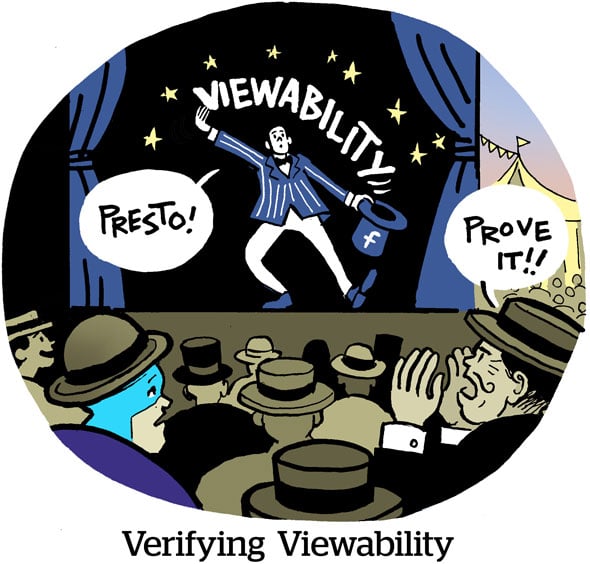What do Pepsi, Ulta Beauty and AB InBev have in common?
A year ago, they were Moat clients. Now they’re in DoubleVerify’s camp.
“It’s always an interesting dynamic when a competitor just literally drops off the map the way Oracle did with Moat,” DoubleVerify CEO Mark Zagorski told investors during the company’s earnings call on Tuesday.
DoubleVerify earned $156 million in Q2 revenue, a 17% year-over-year increase. But profit in the quarter was just $7.5 million, down from $12.8 million at this time last year.
Still, the company is excited for 2025, when it says it should start seeing year-over-year gains accrue from the enforced mass exodus from Oracle’s Moat and Grapeshot.
Mark Stifel, an investor and equity analyst at Stifel Financial, asked for a ballpark figure of the total business opportunity related to customers leaving Moat, benchmarking it himself at about $80 million.
“I think you’re looking at tens of millions of dollars of opportunities against that Moat business,” Zagorski agreed.
Aside from Moat dropping like manna out of the clear blue sky, DoubleVerify is also in the midst of a multiyear journey to fundamentally change its business in two ways: by getting closer to “activation” – as in, the actual act of ad buying – and by focusing on the platforms.
Today, DoubleVerify’s fastest-growing products are those being built for the walled gardens, rather than for open web programmatic.
Activation: Activate
DoubleVerify made its boldest change yet almost exactly a year ago, when the company acquired Scibids, a custom algorithm startup that gets very close to media buying, since its algorithms determine bid prices, audience targets and campaign optimization.
The activation part of online advertising is also the most lucrative.
“By initially engaging customers through measurement, we can upsell our premium price activation solutions,” said DoubleVerify CFO Nicola Allais.
DV can make triple the revenue when a client moves from only using social measurement to also using its prescreening activation solutions, which is like pre-bid tech but for walled-garden apps.
Social future
But aren’t DoubleVerify’s roots in the open web?
Historically, its business has been to verify ads served into environments an advertiser could visit, at least theoretically, to see the exact ad creative that ran and what the whole URL looked like. (Not that advertisers actually had time to sift through millions of webpages and impressions.)
But, more and more, DoubleVerify is bringing its services to walled gardens and social media platforms.
For now, that primarily means YouTube and Meta, which, combined, accounted for approximately 80% of DV’s social measurement revenue. TikTok was a distant third, according to Allais.
But another fast-growing segment for DV is retail media networks, which also mostly operate as walled gardens. DV, which already works with Amazon, added partnerships with Reddit and Pinterest in Q2. It also expanded its brand safety and suitability measurement to Google’s Performance Max and Demand Gen algorithmic ad-buying products, which are two of the blackest black boxes out there.
DoubleVerify can easily justify its change of focus from open to closed programmatic environments. That’s where the money gets spent. Take it up with advertisers.
But one awkward aspect of this transition is that many advertisers may not understand that the brand safety solutions DV offers for walled gardens are fundamentally different than those for the open web. Walled garden platforms report results to DV without DV itself witnessing the placement or its quality.
Nearly 100 customers are now using the prescreen brand safety solution for YouTube that DV launched last year, including 30 of DV’s top 100 clients. DV saw 30% growth in its social activation revenue, Zagorski said.
Next up for DV is more of the same, including “ABS-like” pre-bid tools – ABS, as in Authentic Brand Suitability, DV’s suite of suitability solutions – for the walled garden crowd.
“We are actively developing ABS-like pre-bid applications across three additional major social platforms where we see an activation opportunity potentially as large as what we have achieved in the open web,” Zagorski said.













